In the Past Five Years Alone, Cannabis-Related Tax Receipts Have Grown by 622% in Washington
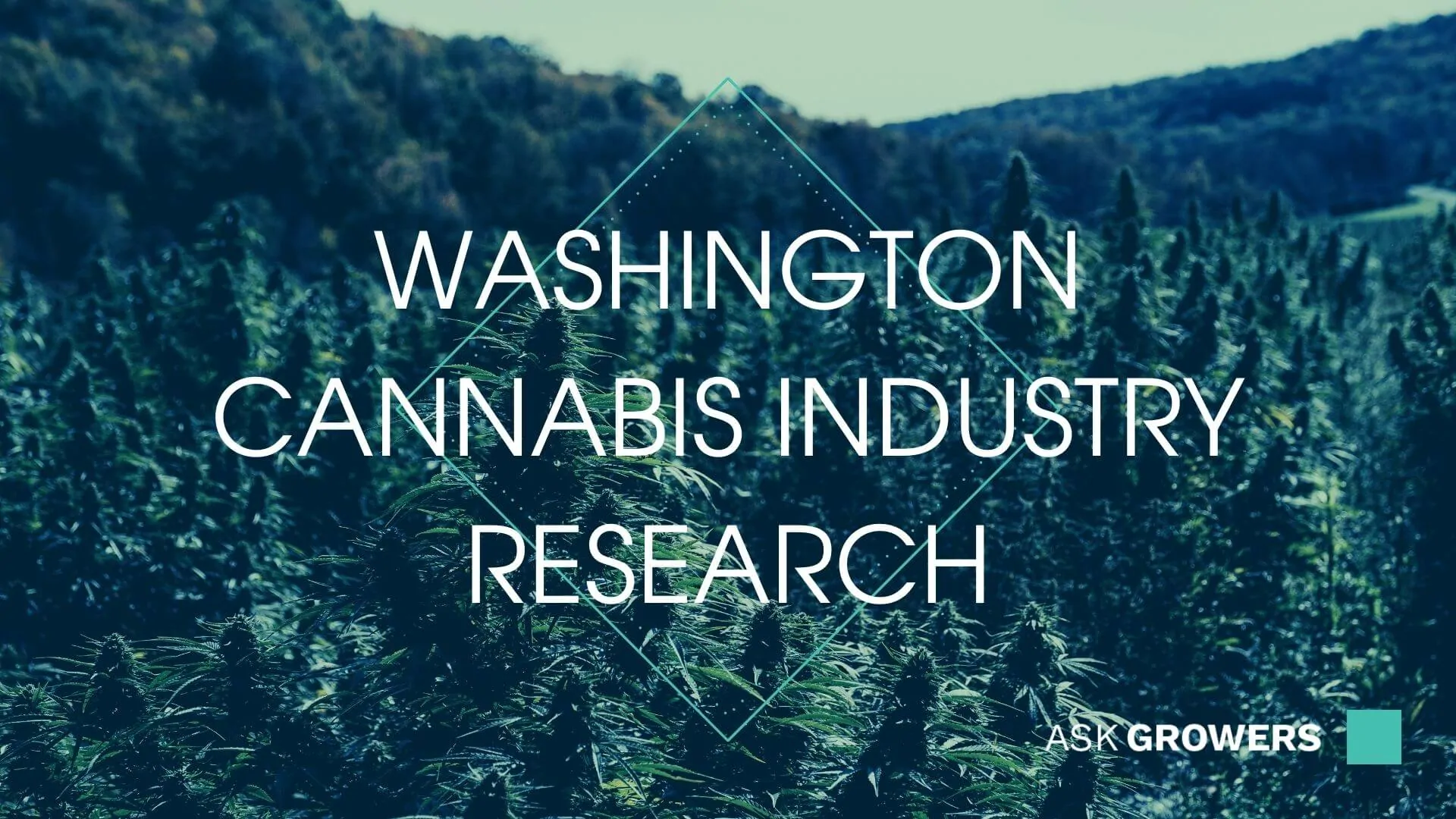
- Sales of Cannabis by Licenses from 2015-2020
- Washington Legal Cannabis Sales By County from 2015-2020 and 2020 Sales Per Capita
- Comparison of Paying Taxes in Different Industries
- Cannabis Industry Jobs
- Sales By Brand
- Recreational Sales Comparison by State
- Forecast for Five Years of Sales, Taxes, and Jobs
- Cannabis Brands from Washington State About Industry
When it comes to the legal cannabis industry, the West Coast has always been the best coast. Washington state has always been a part of that. California got the ball rolling when it came to legal cannabis about twenty years ago with the passage of Proposition 215, followed closely by Oregon, Alaska, and Washington state establishing medical programs of their own in 1998. In 2012, Washington state and Colorado became the first two states to legalize recreational cannabis use. From there, the legal cannabis industry has absolutely exploded into a multi-billion dollar industry.
Washington state is a huge part of that massive and ever-growing legal cannabis landscape in the U.S., one of the shining examples of the financial power of legal weed. For a state of only about 7.6 million people to stand alongside legal cannabis giants like California, the legal cannabis industry in Washington is a force to be reckoned with. Let’s break down what makes the recreational cannabis market in the Evergreen State so special, shall we?
Sales of Cannabis by Licenses from 2015-2020
It’s clear that legal recreational cannabis is a booming industry in Washington. And entrepreneurs and investors looking to get a piece of the ultra-lucrative pie are taking full advantage.
As you can see from the graphic below, from 2015 to 2020 total sales skyrocketed from only $259,522,322 to more than $2 billion. In fact, every arm of the legal cannabis industry grew exponentially, from the producers to the processors, to the retailers. Plain and simply put, legal cannabis is a cash cow that Washingtonian business owners have been quick to milk for everything it’s worth.
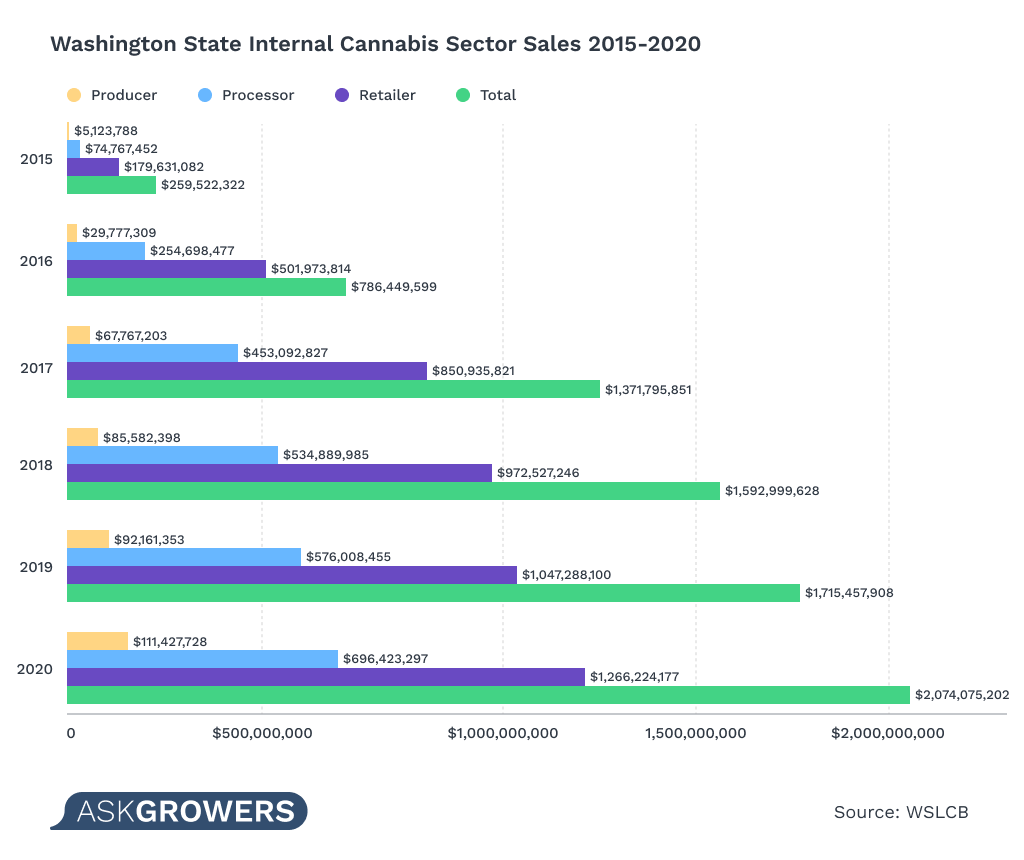
Washington Legal Cannabis Sales By County from 2015-2020 and 2020 Sales Per Capita
While it’s perfectly clear that cannabis is a big, ever-growing business in Washington state, the last five years have seen an absolute explosion in sales. As you can see from the graphic below, sales per county have steadily risen every single year since 2015.
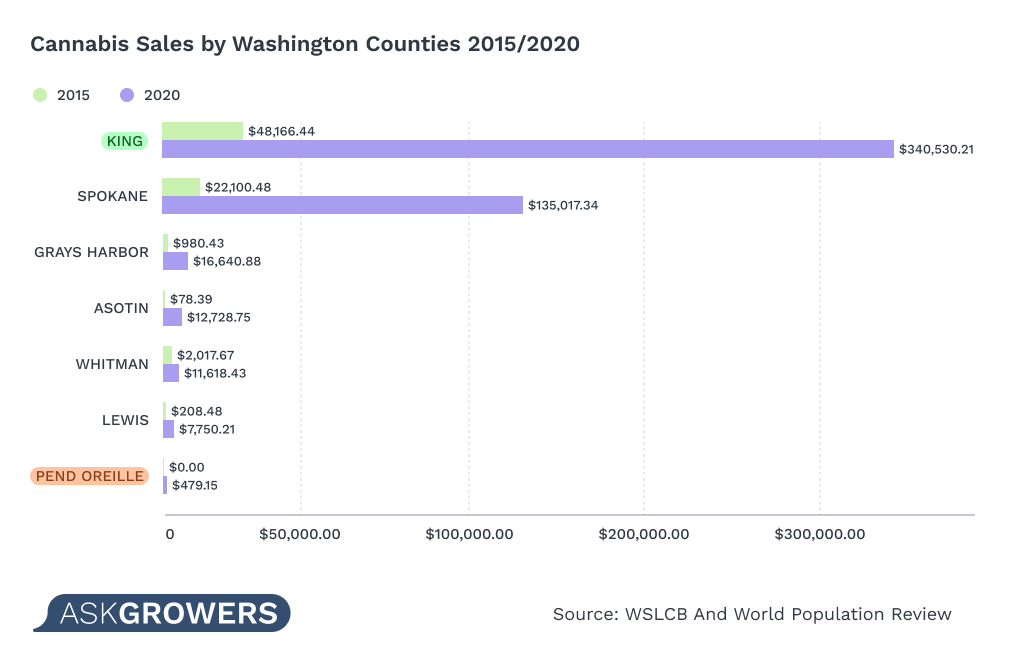
It’s also interesting to take a closer look at which counties in Washington state love cannabis the most. When broken down by county, it’s clear that Spokane and King are far and away the biggest cannabis lovers in Washington state. King and Spokane county have been the leading cannabis purchasers since all the way back in 2015, and today account for a combined $475,547 in 2020. That’s two counties that make up a decent sized chunk of the $395.5 million in legal marijuana income and license fees in fiscal year 2019 all by themselves.
Some key reasons behind those two counties having higher sales figures come down to demographics, population density, and geography. King county is by far the county with the highest population in the state, with more than 2 million people living within its borders, and with a median age of 37 the county is right in the sweet spot for cannabis users according to state demographics studies. When it comes to Spokane, however, the higher sales numbers might be due to tourism since it houses the state capitol.
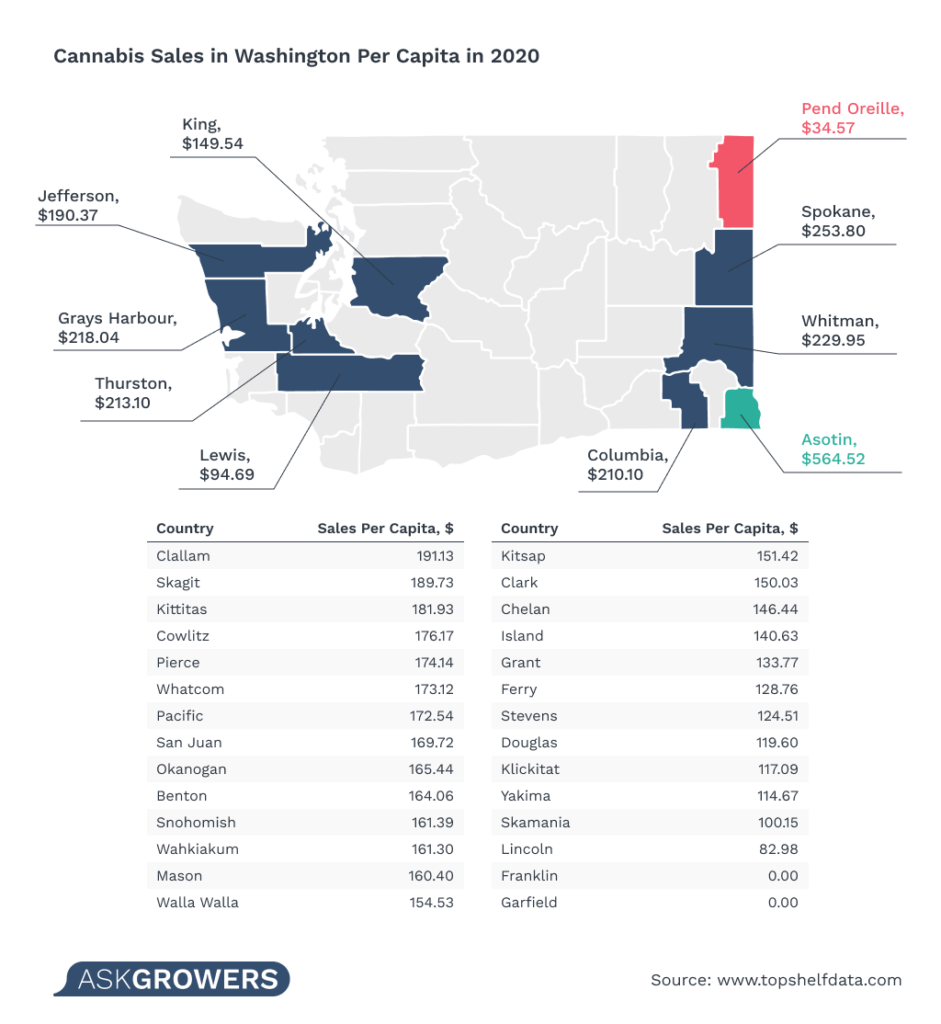
Comparison of Paying Taxes in Different Industries
It might be an understatement to say that the legal cannabis industry is a massive money maker for the state. When you look at the numbers in depth, however, it becomes crystal clear.
While total legal cannabis sales in the state added up to $468,810 million, all but $5.2 million of it came from the state’s marijuana excise, or sales tax. As you can see from the graphic below, the state generates a whole lot of money via sales taxes. In the past five years alone, cannabis-related tax receipts have grown by 622 percent.
[caption id="attachment_51220" align="aligncenter" width="940"]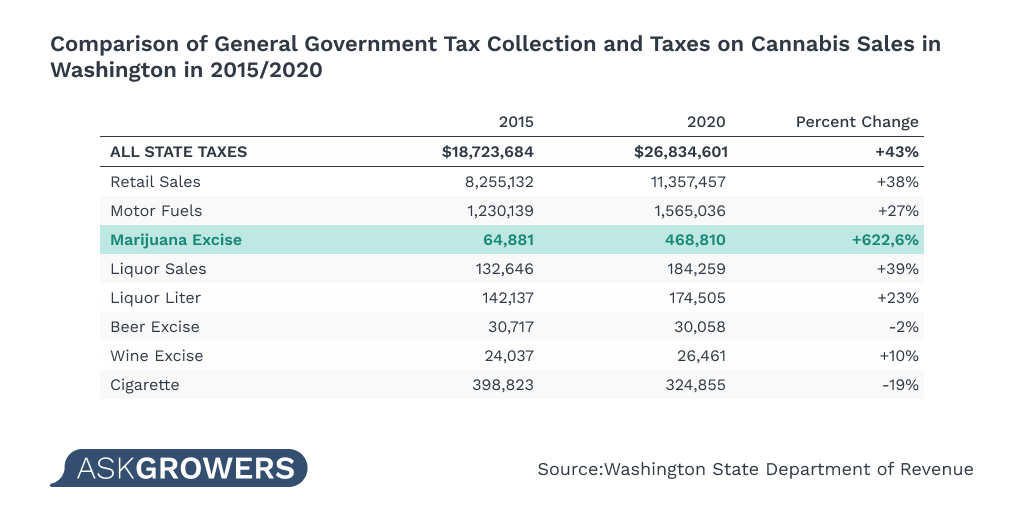 Comparison of general government tax collection and taxes on cannabis sales in Washington in 2015-2020 (million)[/caption]
Comparison of general government tax collection and taxes on cannabis sales in Washington in 2015-2020 (million)[/caption]What’s most interesting about the generated revenue per capita in each county is how it’s seemingly impacted by its neighboring state. When broken down from a sales by capita perspective, Asotin county is the king. Bordering on Idaho, where cannabis is not legal, that's why Idahoans are coming to cannabis friendly border counties in Washington for their product.
Read Also: Researching the Cannabis Industry in Oregon
Pend Oreille, on the other hand, borders Idaho, a state that has neither a medical or recreational cannabis program. In fact, the state is so hostile towards cannabis that it’s one of only three states in the U.S. “without some sort of policy allowing residents to possess products with even low amounts of THC, the psychoactive chemical in marijuana. Residents can cross the state border in nearly every direction and find themselves in places where marijuana can be bought for recreational or medicinal purposes.”
Cannabis Industry Jobs
As with Oregon and Colorado, the legal cannabis industry in the state of Washington is a massive job creator. As you can see from the graphic below, the legal cannabis industry in Washington produced more than 18,000 stable, well-paying jobs.
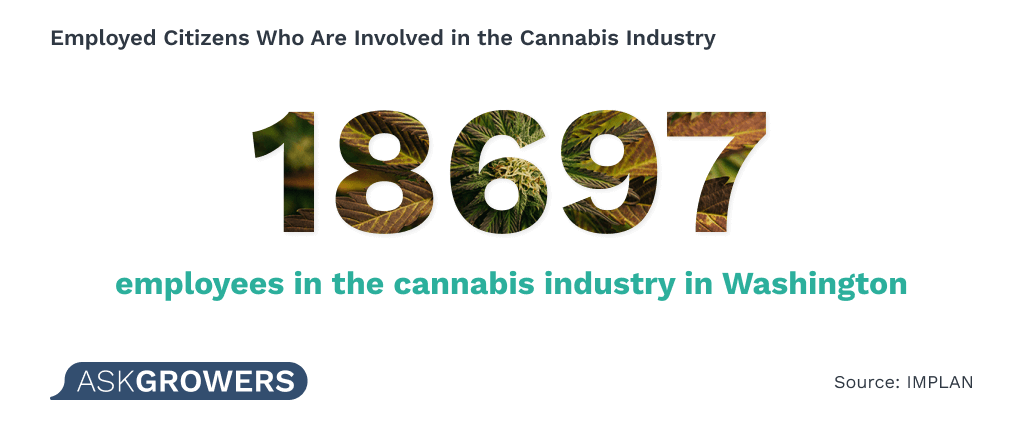
Washington state is the third-highest state in terms of legal cannabis industry employment in the whole country, and as we displayed previously, shows no signs of slowing down anytime soon.
Sales By Brand
In a market as big as the Washington state legal cannabis industry, there are going to be some companies leading the pack. As you can see from the graphic below, the current king of the legal cannabis space in Washington state is Grow Op Farms.
[caption id="attachment_51217" align="aligncenter" width="940"]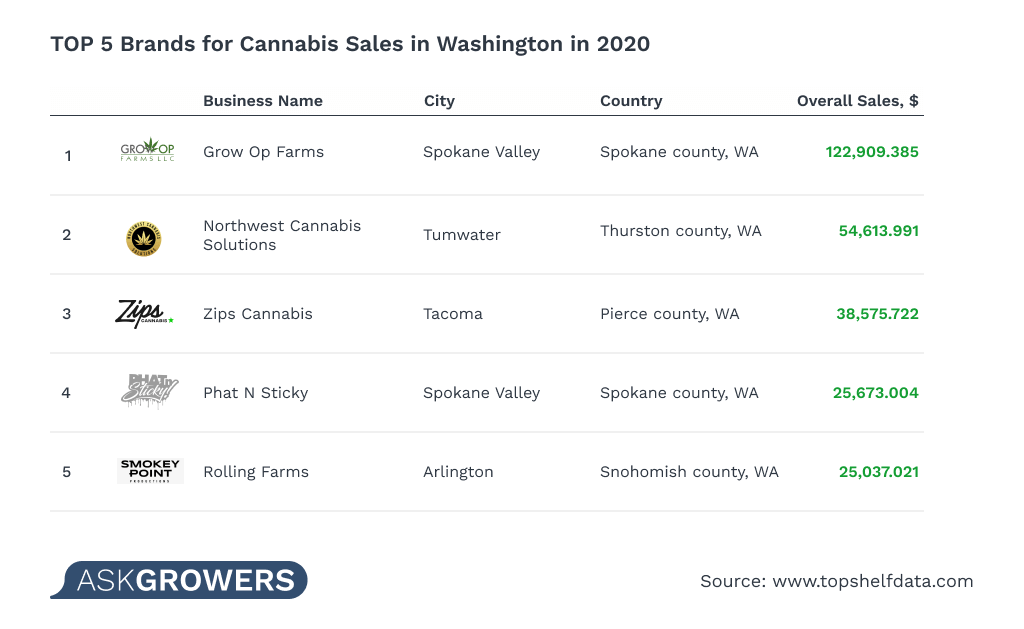 Top 5 brands for cannabis sales in Washington in 2020 (million)[/caption]
Top 5 brands for cannabis sales in Washington in 2020 (million)[/caption]Selling more than $100 million in overall sales, more than double the second place brand Northwest Cannabis Solutions. Primarily based in Washington state with some locations close to the Oregon-Washington border, just a look at their retail store map on their website is a good indicator of why they’re in first place by a mile.
Recreational Sales Comparison by State
Remember before when we mentioned how important the West Coast was to the legal cannabis industry? Well let’s compare these West Coast legal cannabis giants by the numbers, shall we? We already mentioned that Washington state legal cannabis sales in 2019 came out to $395.5 million but how does that compare to the likes of Oregon and Colorado?
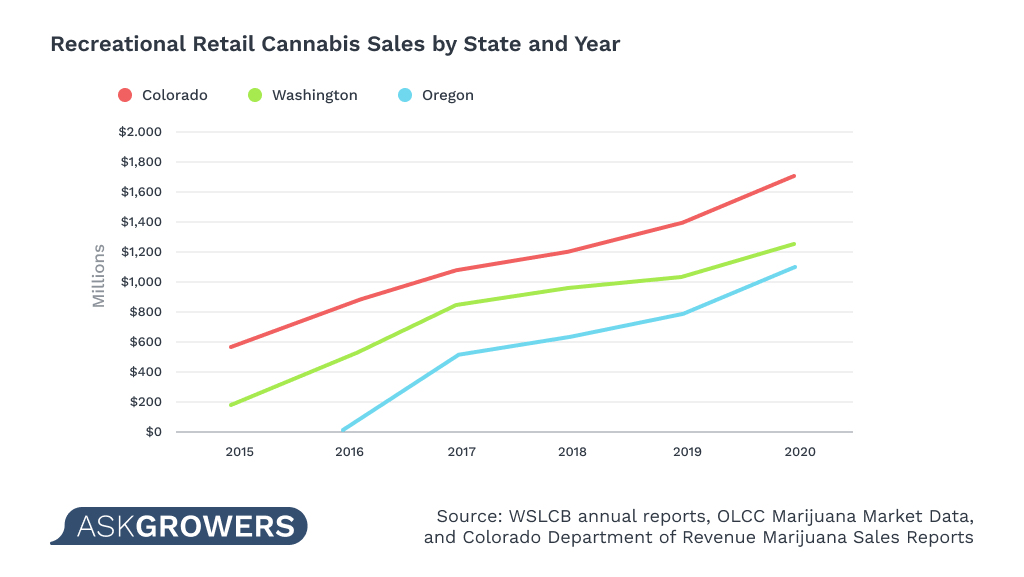
As you can see from the graphic above, Washington consumers have been very interested in legal cannabis over the last five years or so. In 2020, Washington state is between cannabis giants like Oregon and Colorado when it comes to recreational sales figures.
It’s worth noting, however, that Washington could be doing better when it comes to their sales numbers. Oregon and Colorado both allow for citizens to grow their own cannabis at home, opening up a whole new market of seeds and growing accessories to generate profit from. Washington state, on the other hand, still has a ban on domestic growth. That could be a key reason why the growth of the legal industry in Washington has slowed down a bit in recent years.
Forecast for Five Years of Sales, Taxes, and Jobs
No matter how you look at the legal cannabis industry in the state of Washington, there’s no doubt it still has some room to grow. Despite being a massive job creator and an economic force to be reckoned with, experts and forecasters see the Washington legal cannabis industry as primed to explode over the next five years.
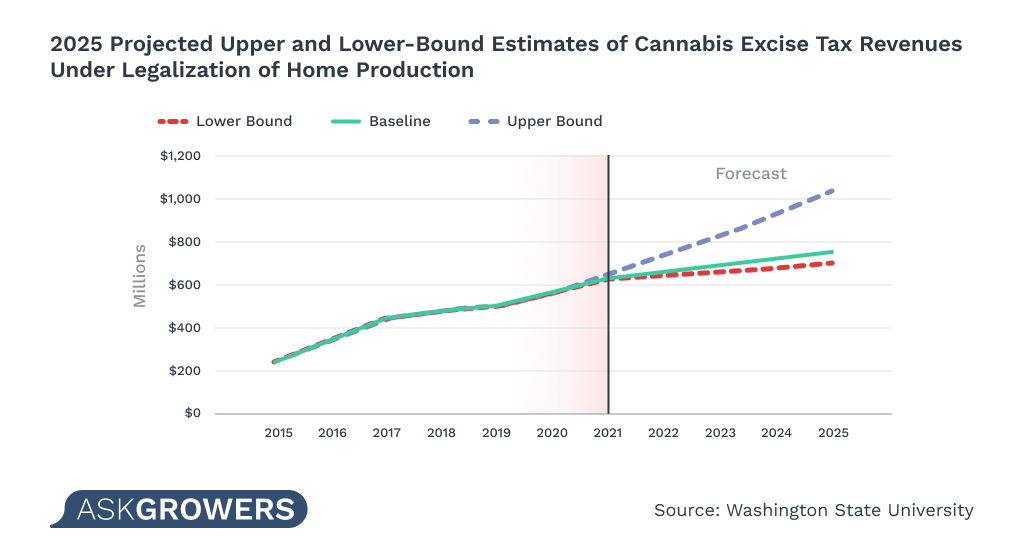
As you can see from the graphic, experts project the legal cannabis industry in Washington to be worth about a billion dollars by 2025. That puts it about on par with states like Colorado and Oregon when it comes to money-making power.
With the current numbers and projections being where they are, it’s no wonder that every investor wants a piece of the upstart legal cannabis industry!
Cannabis Brands from Washington State About Industry
The legal cannabis industry is alive and booming not just in Washington state, but all over the U.S. As we’ve pointed out throughout this article, the legal cannabis industry in Washington generates hundreds of millions of dollars, creates jobs, and has the potential to grow even larger in the next five years or so.
These days, working for or running a cannabis business is about as normal as working in a supermarket or an office building. What sets cannabis apart is its profound ability to promote clean, natural medicine, racial equity, and criminal justice reform.
The best way to illustrate those commitments is from the source, right? Well, here at AskGrowers we consistently talk with some of the most innovative and cutting-edge cannabis industry entrepreneurs based in Washington. So we say we let those creators speak for themselves!
The main features of the cannabis industry in Washington that we wanted to let these entrepreneurs and business owners tell you about are:
- The challenges they face operating cannabis businesses so far
- The future of the cannabis industry in Washington state
- Promoting equity and sustainability in the cannabis industry
For an idea of the challenges that cannabis businesses face in Washington state, check out our interview with Skagit Organics. Matthew Friedlander, the CEO and one of the brand’s founders, breaks down the challenges his brand has faced in an interview with AskGrowers.
“The biggest obstacles for us have been the numerous rules and regulations we have to follow that other industries are not forced to deal with. The first few years also saw many changes to these rules that complicated things further. A lack of access to traditional banking and loans is one example of a restriction that creates major challenges for our entire industry.”
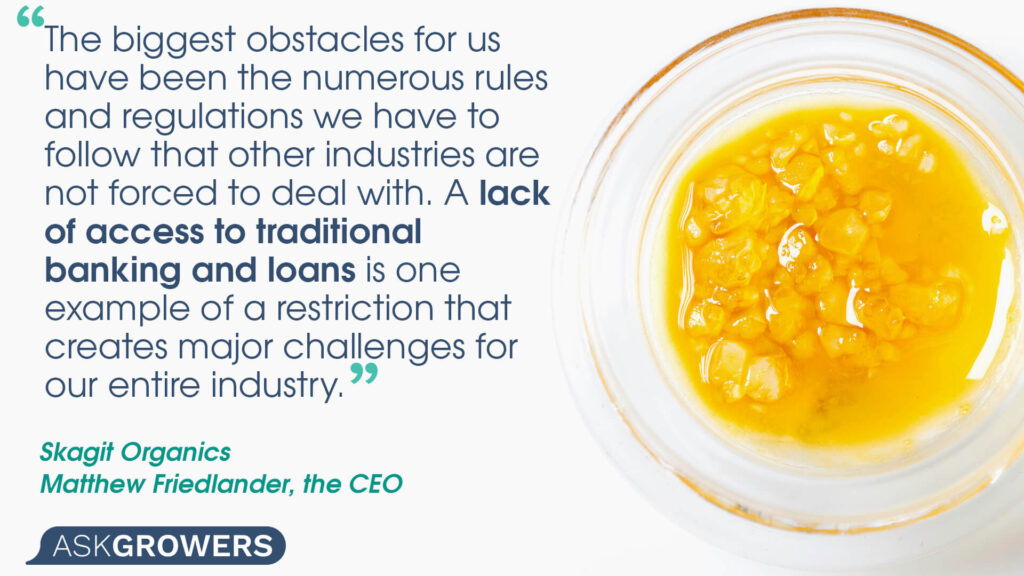
For an in-depth breakdown of how leaders of the cannabis industry see the future of the industry, have a look at our interviews with the founders of brands like Skagit Organics, Saint Joints, and Deepcell.
Here’s Matthew Friedlander from Skagit Organics again:
Matthew: “I personally believe federal legalization is ultimately the goal for a number of reasons, especially reducing and remedying the harm done to people and communities negatively affected by the failed war on drugs. The way this is handled and the resulting regulations and rules will determine whether the business side of legalization will be dominated by large businesses and corporations or remain true to the cannabis culture and the people that have been involved with the plant for decades.”
Lawrence Perrigo, a former record industry executive turned cannabis brand founder, sees the future of the legal cannabis industry as normalization. He wants his brand Saint Joints to get the same tax breaks, support, and legal access to banking resources as other businesses.
Lawrence: “Hopefully fully legalized so we can operate as normal businesses. So we can take the tax cuts and loans that other businesses can take advantage of.
Legalization really is key. That’s the only thing that will make the plant acceptable for everyone, even people who had gotten in trouble in the past or have been doing so in secret. Eliminating the racism of it all is of massive importance.”
For a longer-term look at the future of the cannabis industry, look no further than Deepcell CEO and co-founder Kelly Ogilvie. He sees the future of the cannabis industry as comparable to the legal alcohol or pharmaceutical markets, both multi-trillion dollar industries.
Kelly: “We believe federal legalization will lead to a boom in global cannabis. The USA leads the world as a result of the size of our economy. Currently, the global cannabis market is projected at $344 billion, including black market. This is while it’s illegal in 99 percent of the world. Alcohol is a $1.5 trillion market, with over a billion users. Once cannabis is legal, it will overtake alcohol and provide off-ramps to damaging pharmaceuticals and an alternative that does not have the same risk factors as alcohol.”
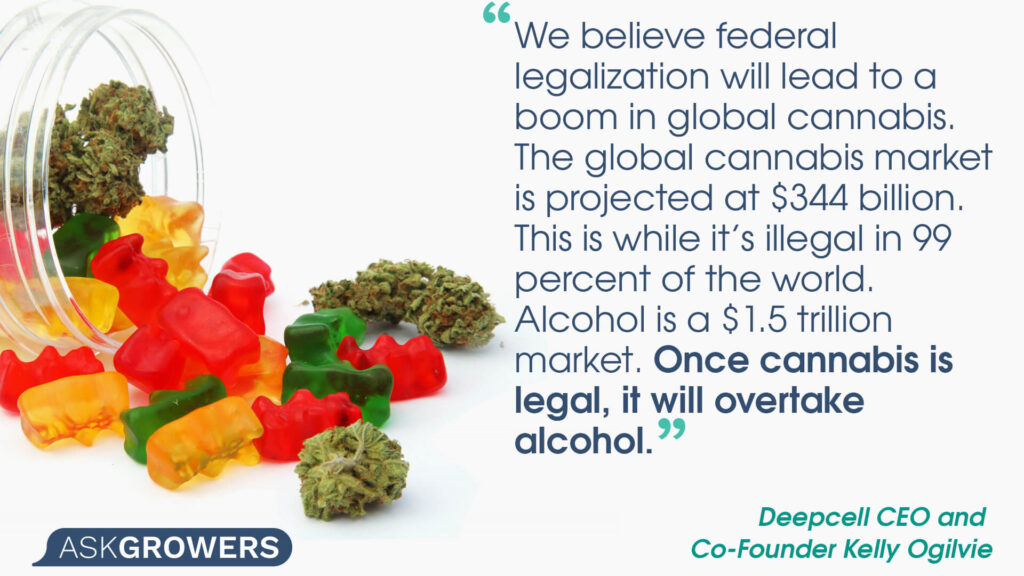
But as important as the growth of the legal cannabis industry is, it’s just as important that brands practice sustainability. Climate change is a global problem that massive industries have had to make adjustments for. Just look at the automotive industry, which has poured billions of dollars into building electric or non-carbon emitting vehicles already. The legal cannabis industry needs to make the same types of changes and commitments to sustainability.
Many brands in Washington state already work hard to be as sustainable and eco-friendly as possible. For examples of how the Washington state legal cannabis industry prioritizes sustainability in its processes, look no further than brands Wildwood Flower Farm and Heylo.
Wildwood Flower Farm, for example, is a family-run business that commits to sustainable, pesticide-free, farming practices for their cannabis. Those practices are proven to be better for the long-term health of the planet and overall environment around them. Issac Ekholm and Melissa Beseda, co-founders of the brand, break that down below:
Melissa/Isaac : “Studies have concluded that the indoor cannabis industry may account for 1 percent of energy consumption in the United States. We grow high-quality, small-batch weed under the natural light of the sun without the use of supplemental lighting. We try to close the loop as much as we can with our inputs: all of our plant waste is composted and will amend the soil for the next crop. Since we are on a well, we are very cognizant of our water usage and practice strict water management practices.
We only use natural, OMRI-rated pesticides that are gentle on the environment, beneficial insects, and predatory mites. We have also minimized our use of mylar packaging, opting instead for kraft paper stand-up bags. As part of our five-year plan, we’d like to replace all of our packaging with compostable materials and begin converting to solar energy.”
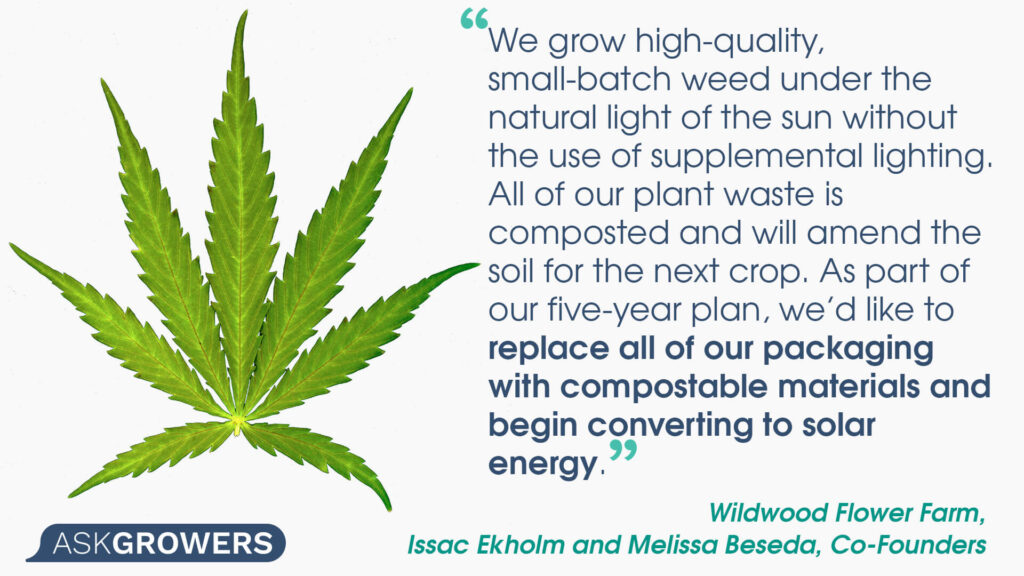
For another perspective on sustainability in the Washington state cannabis market, let’s touch base with Heylo. This 100 percent women-owned cannabis brand commits to a “no-waste,” environmentally sustainable approach. Laurel Friesen, the brand’s founder and CEO, opened up in detail during an interview with AskGrowers.
Laurel: “Heylo is a sustainable brand in business and with respect to the earth, which we believe go hand in hand. We are as “no waste” as we can be. Everyone at the company understands that we individually can make a difference in minimizing waste and takes that into account at every step of the process.
Here are a few things we do to minimize waste and contribute to sustainable practices:
We reuse our CO2 and ethanol. We work with a grow partner, Cascade Gnome, who takes our post-extracted biomass and reintroduces it into their soil and compost to enrich their land. We use recyclable packaging, some of which is produced by wind power. We create lasting partnerships with growers and retailers that share similar values and vision for this industry to ensure that all of us will be in business for a long time.
“Our products are produced using sustainable cannabis grown with organic methods. Our packaging is recyclable and made with wind-power. Our process uses sustainable solvents, like CO2, and certified organic and kosher ethanol. We’re always working hard to find even more ways to make our products eco-friendly!”
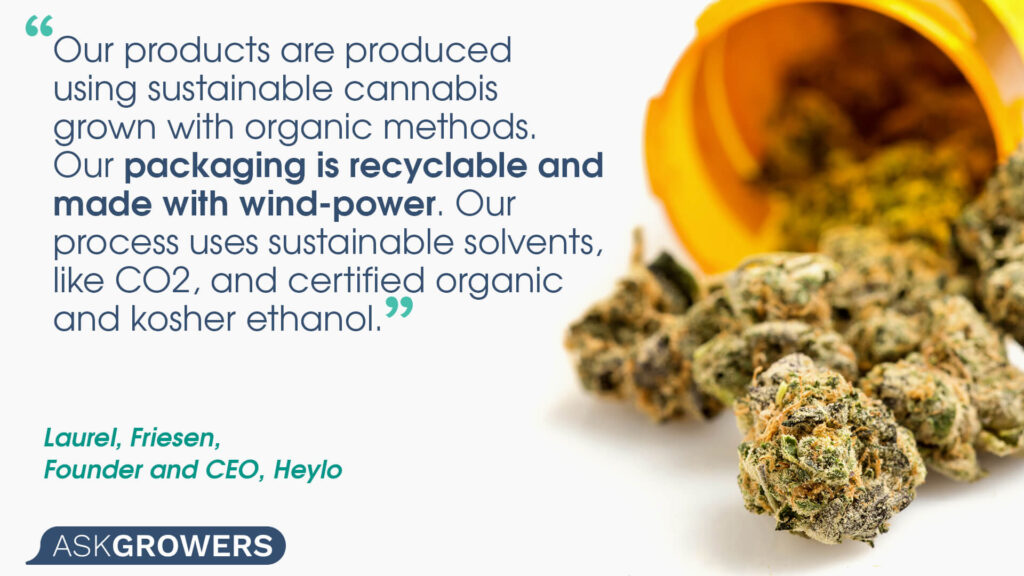
Read Also: Cannabis in Washington
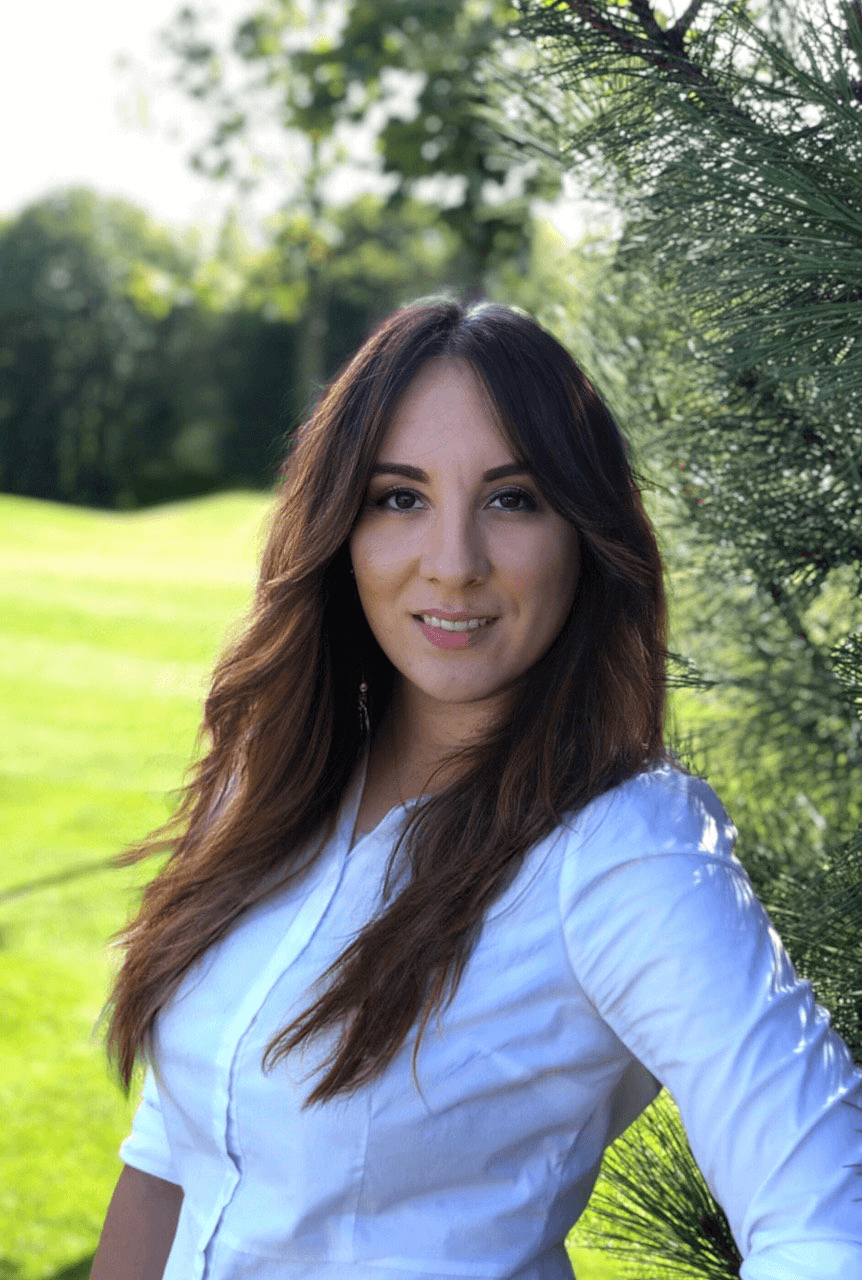
 Industry
Industry

.jpg)
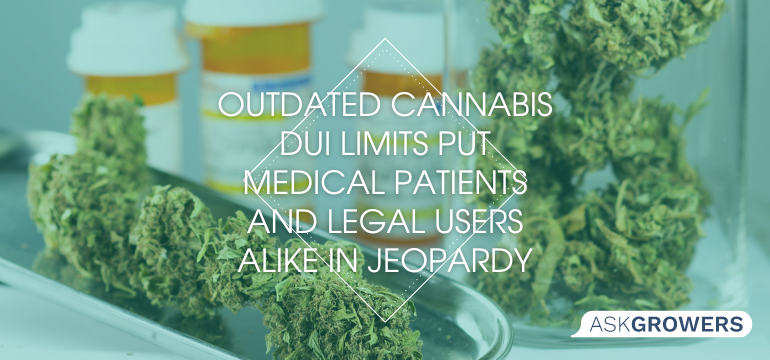
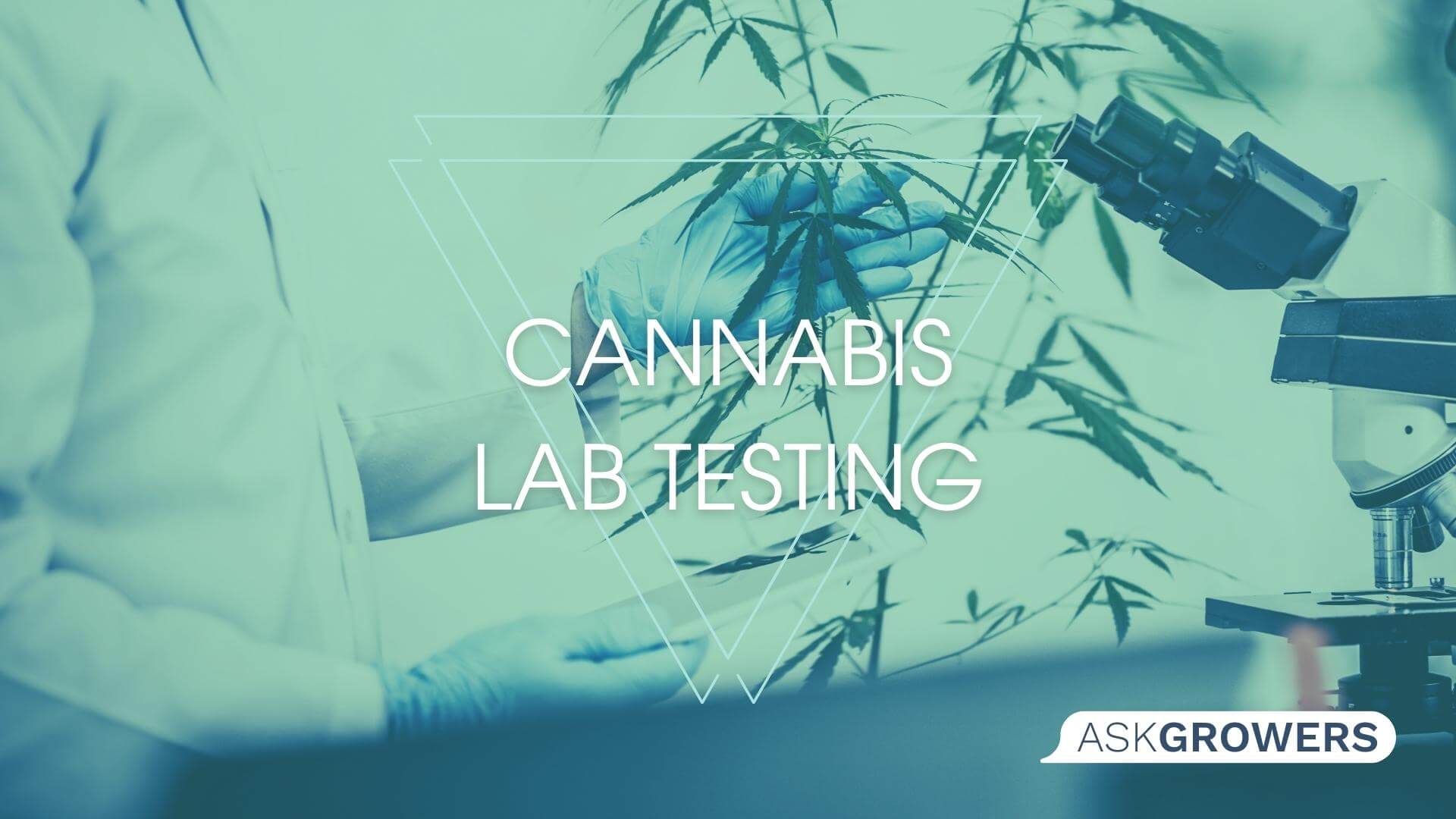
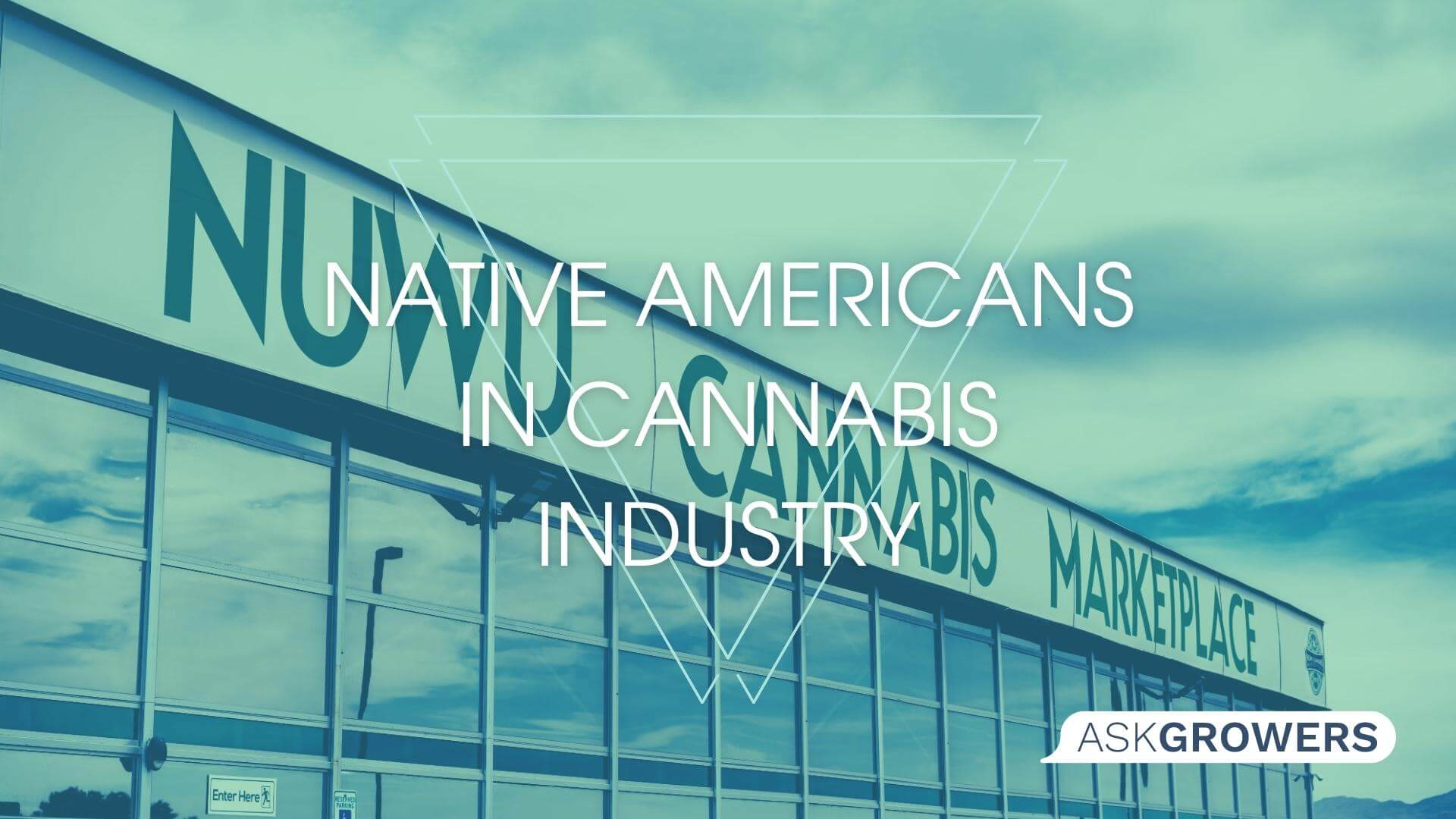
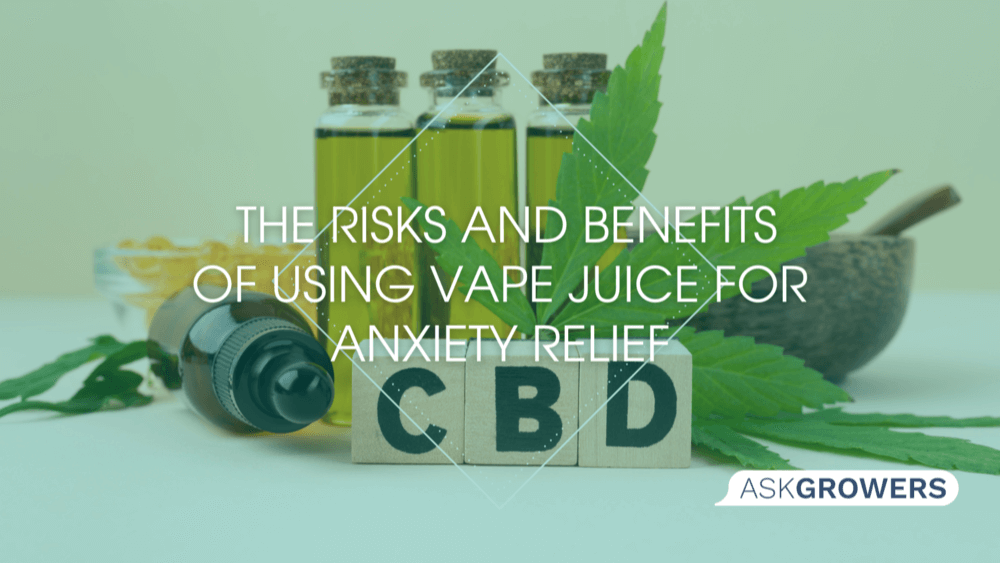
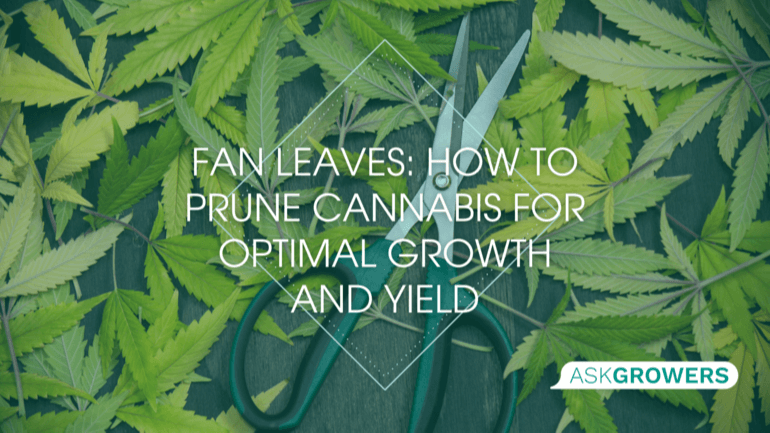
 (1).png)
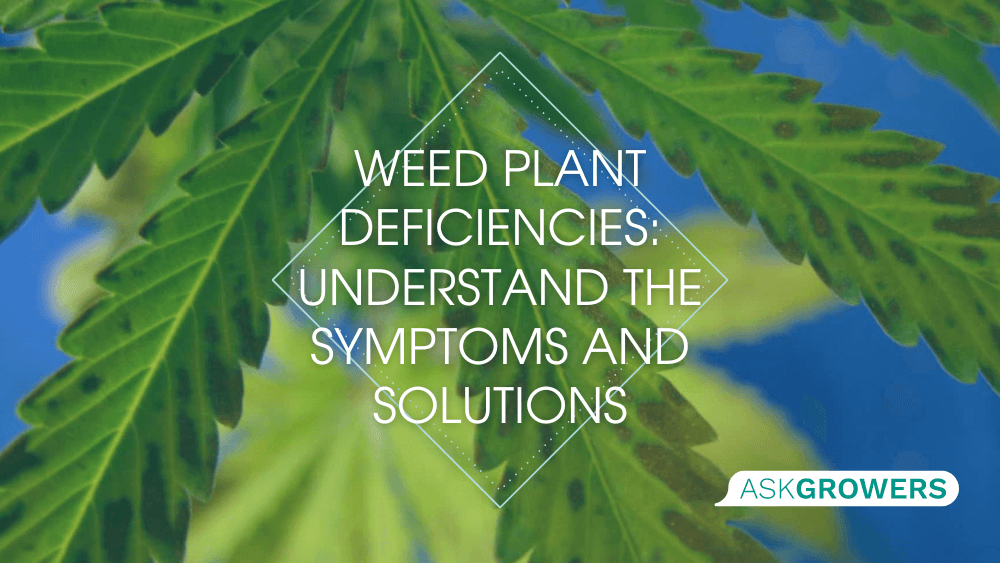
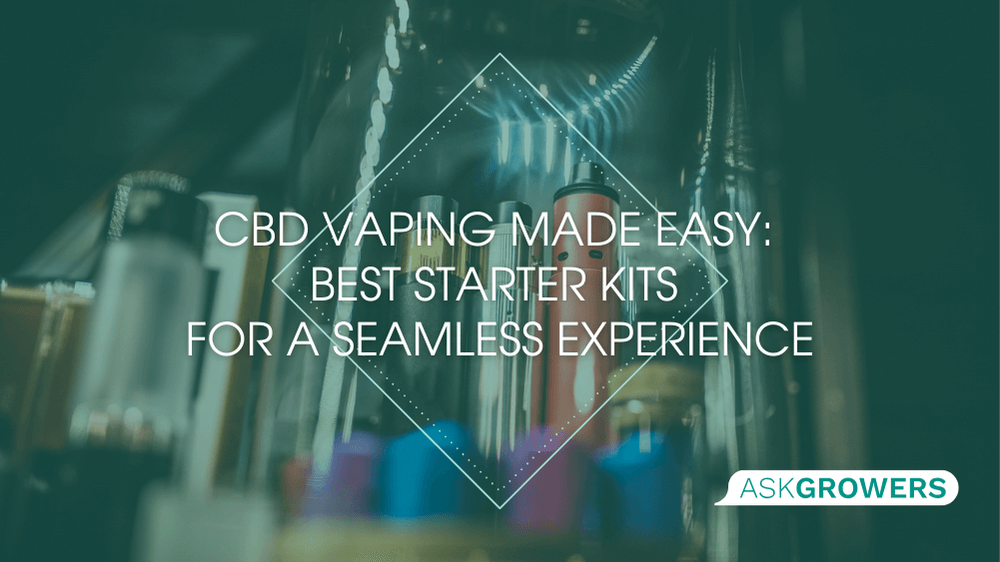
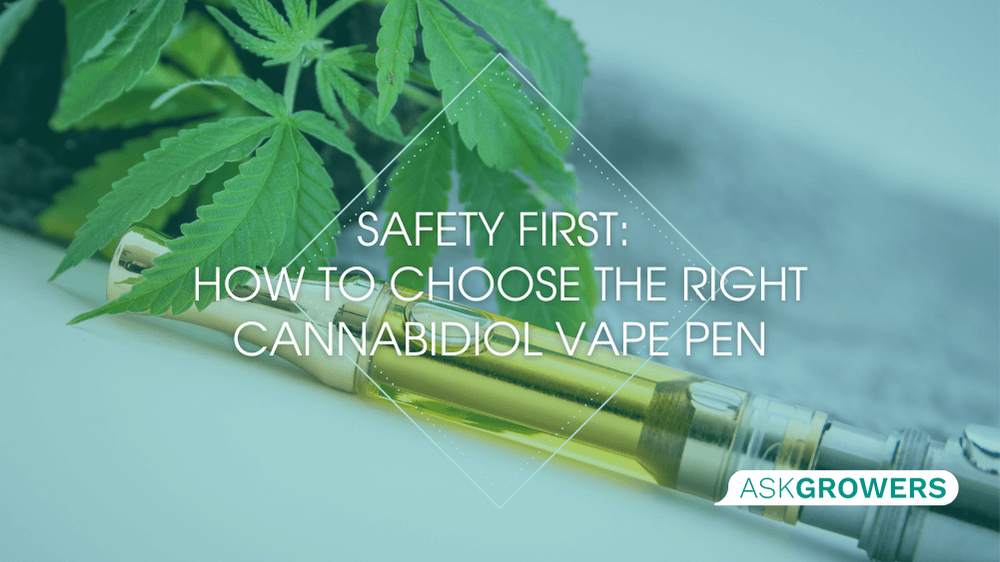
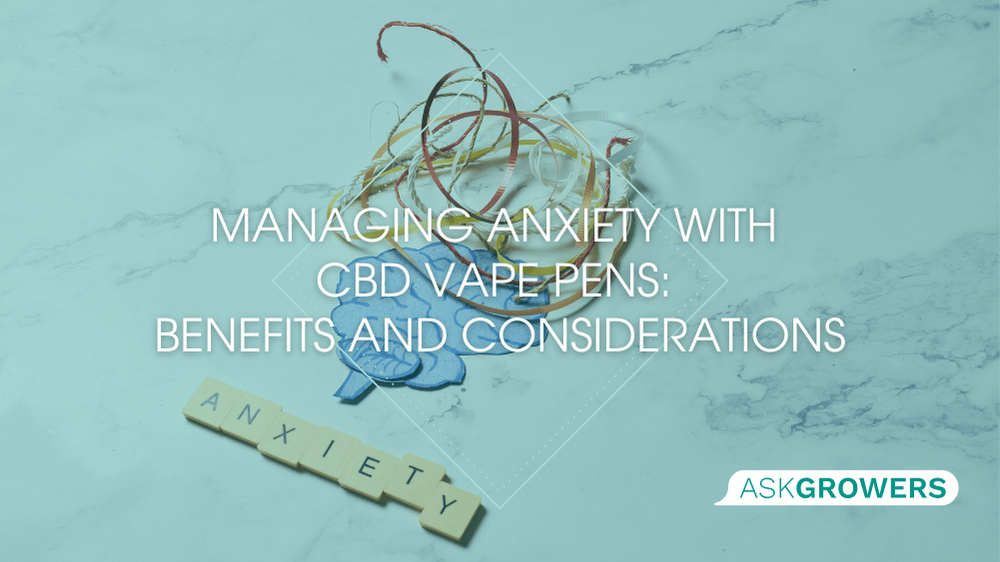
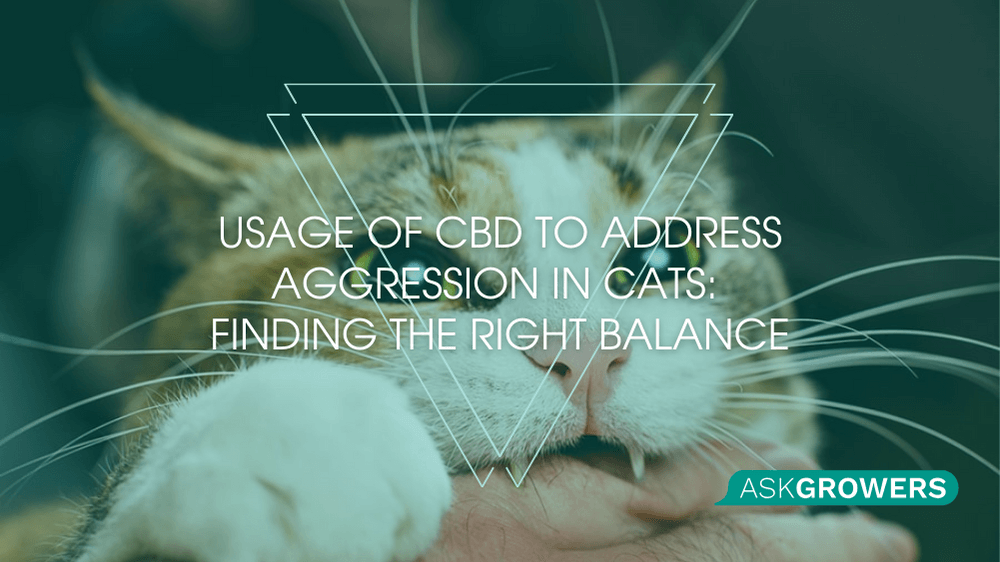
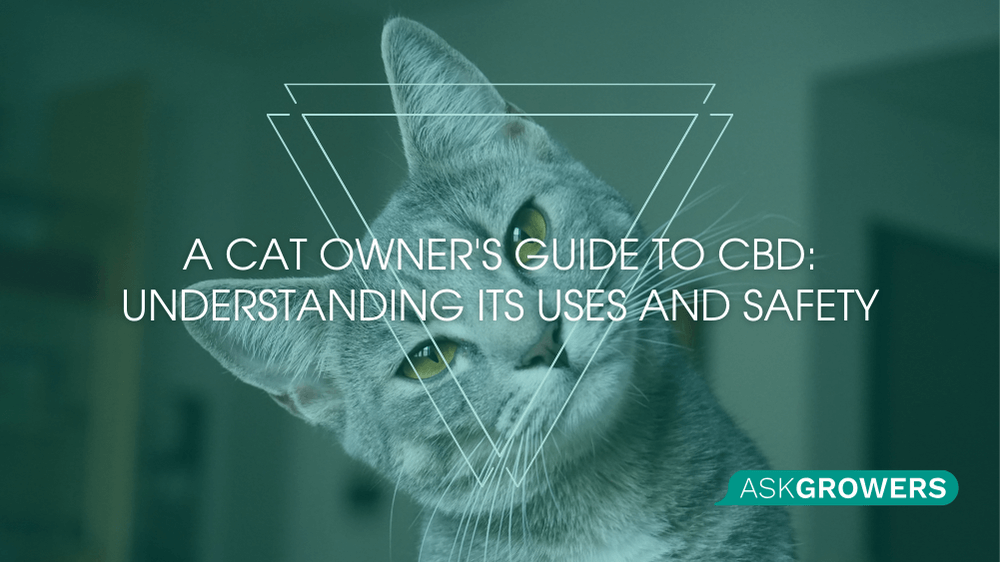
Be the first and share your opinion
Write a Review